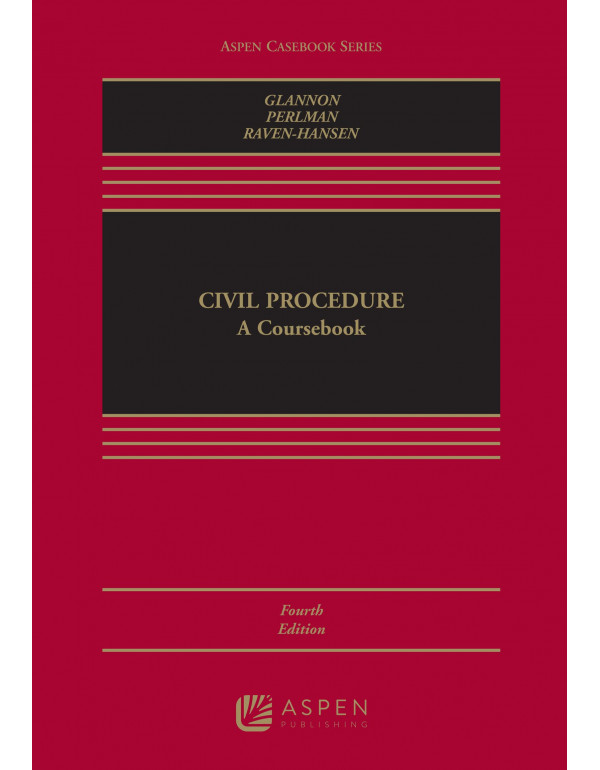Descriptions
Civil Procedure: A Coursebook (4th Edition)
This law textbook provides a comprehensive and accessible overview of civil procedure in the United States. It emphasizes clarity and critical thinking while acknowledging the complexities inherent in legal concepts.
Key strengths:
- Beginner-friendly: Presents complex legal topics in an understandable manner, making it suitable for law students starting their civil procedure journey.
- Organized for learning: Structured with clear chapter outlines, summaries, and case introductions to enhance information retention.
- Balanced approach: Explains legal doctrines effectively while acknowledging ambiguities and potential challenges.
- Real-world connections: Integrates contemporary cases and issues, demonstrating the practical application of theory.
- Engaging pedagogy: Incorporates practice questions, study aids, and online resources to promote active learning.
Content overview:
- Foundations: Explores core principles like jurisdiction, venue, and personal jurisdiction, laying the groundwork for civil litigation.
- Pleading: Examines the rules for initiating lawsuits, drafting complaints and responses, and navigating the early stages of a case.
- Discovery: Delves into the process of gathering information from opposing parties before trial to build a strong case.
- Pretrial motions: Discusses various motions, like dismissal or summary judgment, that can potentially resolve a case before trial.
- Trial: Covers the rules governing evidence, jury selection, arguments, and other aspects of courtroom proceedings.
- Appeal: Explains the process for challenging trial court decisions through the appeals system.
- Remedies: Explores the different forms of relief available to prevailing parties, such as damages or injunctions.
New in the Fourth Edition:
- Updated cases: Addresses contemporary issues like personal jurisdiction in the internet age.
- Expanded coverage: Delves deeper into affirmative defenses, class certification, and issue preclusion.
- Proportionality in discovery: Discusses recent developments regarding the balance between information gathering and undue burden.

